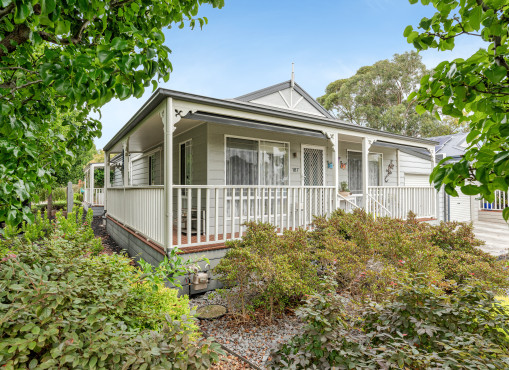- Home
- /
- All blog articles
- /
- How much money do you need to retire in Australia?

How much money do you need to retire in Australia?
How much money you need to retire in Australia really depends on your lifestyle and vision for your retirement.
Cruising in a Fiat or Ferrari?
Indulging in pasta or a three-course meal for dinner?
Staying in town or visiting a new one?
Which holy trinity will it be? When it comes to retirement and the living standards you might be able to retain, it gets tricky real quick. How much money you will receive and how much you actually need once you retire in Australia depends on very individual and personal circumstances.
First things first: We won’t be able to give you an exact answer to your situation. However, we do have a lot of great tips and food for thought to help you get started on your retirement plan. Hope you are hungry!
Whether you choose comfortable retirement or a rather exclusive retirement standard, there are a few things to consider to make the most of your neverending holiday of your life. Now, strap on your learning goggles, we are going through the options.
Let’s start with the big questions
There are a few things you need to clarify for yourself before getting closer to calculating your future retirement income and determining how much money you need to retire.
1. When do you want to retire?
We can already sense the answer: “IMMEDIATELY!” If you can, excellent. But it’s often more so a question of when you are able to retire or at what point in time you can access age pension and super funds. After all, you want to be well prepared to enter the time of your life.
Generally speaking, the average Aussie intends to retire at the age of 65 in Australia, according to the stats – this suggests to be eligible to receive age pension benefits. But there are different options for how you spend your time until the final retreat.
You can choose to retire earlier too, maybe due to health reasons, because the timing aligns perfectly with your partner’s retirement plans or you want to spend more time with your family. Or simply because you feel like it.
Whichever way you decide to go, be aware that the age at which you stop working can have a big impact on the amount of money you can get. We suggest seeking help from a financial adviser who is specialised in retirement funds or you can also use a retirement calculator for some assistance. If everything still aligns with your plans, perfect!

2. What kind of lifestyle are you planning?
Imagine yourself living in the castle of your dreams, with a million bedrooms to host all your friends and family to serve champagne for breakfast.
Or starting the day relaxed with a perfectly downsized home and a fun community at the door step could be how you wake up every morning once retired.
It’s up to you what your future might be like, but before getting carried away with dreaming, try this:
Picture a week of what your life could look like. What is a realistic scenario? How do you spend your morning, how the afternoon? Do you want to pick up a new hobby? After all, when you retire you get back a lot of free time that you spent on working previously. Are there any activities or projects you always wanted to get to but never had the time for before? Is travelling playing a part in your image?
3. What will you be spending money on?
You might find it hard to predict your future spendings right out of the top of your head. Why don’t you start with your current monthly costs instead. What’s your average spend every month? What are your fixed costs at the moment? What is a necessity and what a luxury?
Once you establish your current finance state, you can start removing the elements that won’t apply to your retirement scenario. For example, you might not have to pay rent anymore if you own a property or since downsizing your home.
You will notice that certain costs will still be there whether you have a job or not. Costs for food, insurance, health treatments, fuel or public transport are common parasites of your bank account. But it’s very helpful to be aware of these details in order to get a good idea of your upcoming spendings.
4. How long will you be in retirement (eg. 65-90)?
For this example, let’s assume you retire by the age of 65 and with good health you live to blow out 90 candles on your later birthday (hopefully even breaking the 100 high score one day).
With that life expectancy, that’s about 25 years to live life to the fullest and to cover it financially. Compare the lifestyle you want to create with your monthly spendings. Do they align and paint a realistic and achievable scenario? One that lasts for the life span of your retirement, with some ups and downs, little luxuries and a comfortable living?
When reviewing your plans, you might even notice that your predicted income and retirement savings allow you to retire earlier than 65 – make sure to get a proper overview first before claiming your age pension out of excitement.

More tips to help you calculate how much money you will need to retire in Australia
What government entitlements do you get in retirement?
The most common one is receiving the age pension. If you are eligible and can tick all the boxes for the requirements, age pension is usually your first pillar of retirement income. Depending on your situation, you might also be entitled to extra benefits from your state or territory such as tax offsets, carer support, pension supplements or extra payments to help with energy and other household bills.
In addition, your super funds will come into play. The time to shine is now and your super add-ons over the years will now pay off and hopefully help you to have a little extra coin in Retirement City.
But also don’t forget about other benefits such as government concession cards that give you discounts on public transport or healthcare treatments. Pssst! Another cool one to jump on is the National Seniors Card.
Facilitate a retire plan and speak to an expert if you need to
By now you should be a big step closer to having an idea of your retirement plans. But surely there are still some topics unanswered that leave you with question marks over your head. The best way to make sure you get the right advice for your individual needs is to consult with an expert. Reach out to government support like Centrelink or get in touch with a financial advisor to go through everything that sits on your chest.
Have your retirement plan ready as far as you got, including an overview of your predicted monthly spendings and shoot all the questions that will clarify your future situation. Yes, you can even ask whether there is a magic trick to include a big whirlpool within your calculations. Anything to make you feel settled and ready – this should prepare you on how you are going to spend the rest of your life comfortably.
Consider downsizing to free up equity
Moving into a downsizing home creates more space for a greater lifestyle at the same time. And when you sell your existing home you can free up equity which adds a great booster to your finances. The extra savings you secure this way can be used to tackle fun activities during your retirement life. If you are looking into selling your current property use our home equity calculator.
Speaking of downsizing, Lifestyle Communities® is championing the luxurious way of scaling into a more appropriate home for your needs. Holiday vibes all year round, here we come! And since we got you covered with fun facilities such as a pool, gym, cinema or bowling you also got a great selection of activities for your retired life on top. You can easily use your unlocked equity to enjoy the full list of adventures. What a deal, huh?
By the way: you don’t need to be retired to start downsizing. Still working, full or part-time? No problem at all. In fact, we encourage you to change up your situation while you are young enough so you don’t have to worry about anything later on in the journey and can already enjoy the perks of being a part of Lifestyle Communities®.
Find out more on downsizing your home
or get in touch with us to get more details around how it works.
What should you do if it looks like you may not have enough?
Now, before you break out in a panic sweat: against popular belief you don’t necessarily need $1,000,000 in savings in order to make it through retirement. The magic number for your situation will most likely be closer to a third of the big one. It’s more like just one scoop of ice cream instead of a family-sized bucket (even though the bucket sounds extremely nice to have).
If you still have a few years of work life ahead and you want to take some extra precautions to improve what’s lying ahead, here are a few ideas.
- Speak to your Superannuation provider and see if you can make extra contributions or if different options lay on hand you haven’t considered yet.
- Reach out to a financial expert who will be able to help tailor your savings and investments towards a brighter outcome.
- Switch up your lifestyle expectations. Maybe you can compromise on some luxuries?
- Delay your retirement if it makes a difference with your financial outcome.
- Contact government services to see what extra support you can claim.
- And of course: downsize your home, free up equity and convert it into pocket money, and enjoy a home that feels like a holiday with a community right in front of your doorstep.
We are looking forward to helping with unlocking your future – enquire now!


